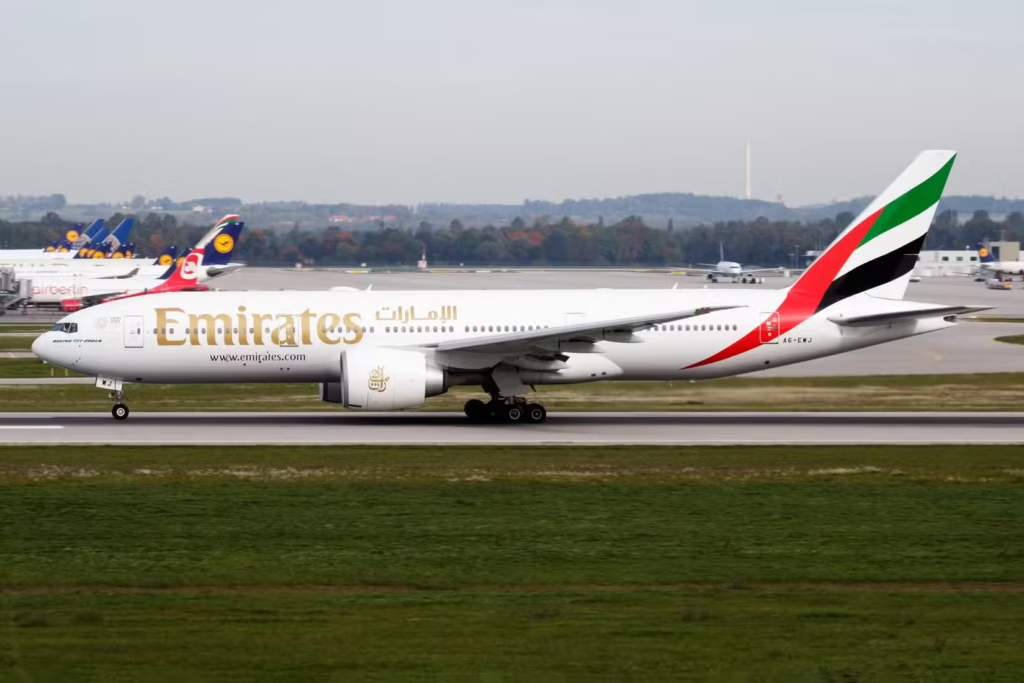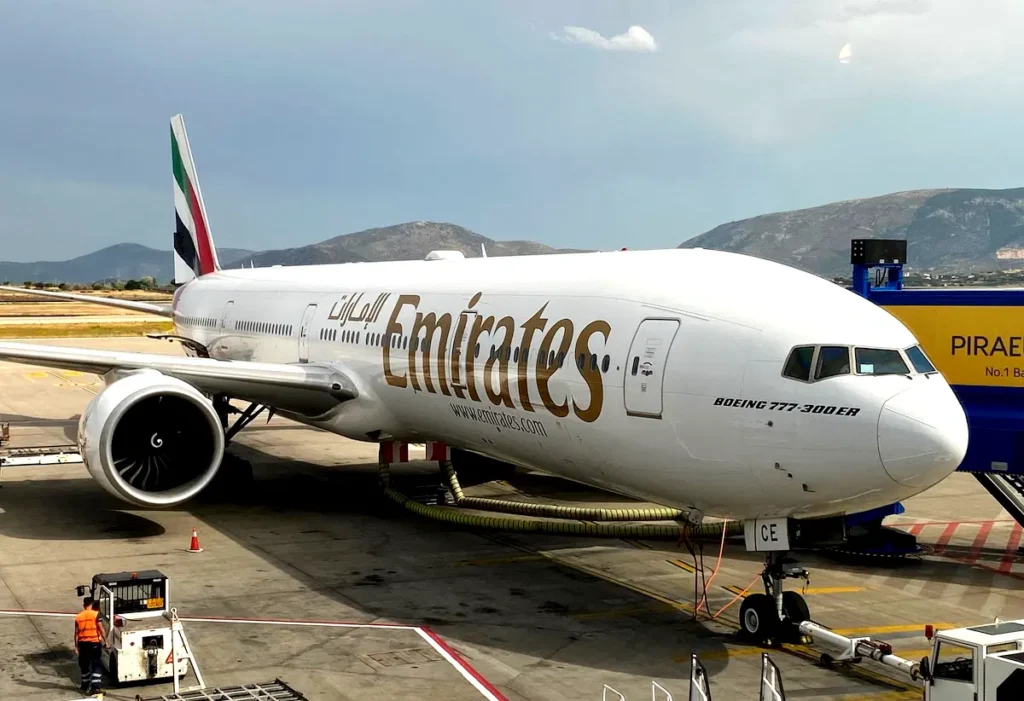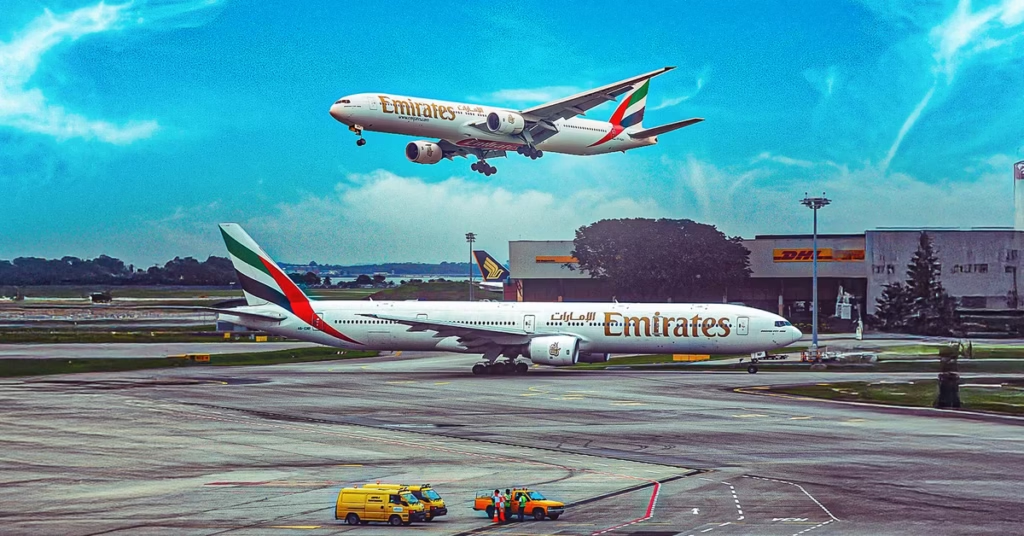Emirates Airline cuts flights to Tel Aviv, a move that marks a significant shift in Middle Eastern aviation and regional relations. The decision comes amid escalating tensions and security concerns in the region, raising questions about the future of air travel to and from Israel.
This article explores the reasons behind Emirates Airline decision, the impact on travelers and businesses, and the broader implications for the region.
Why Emirates Airline Cuts Flights to Tel Aviv
The decision by Emirates Airline to cut flights to Tel Aviv reflects multiple factors tied to safety, politics, and market demand.

Growing Security Concerns
The Middle East has seen increased instability recently, with clashes and conflicts near Israel causing heightened security risks. Airlines prioritize the safety of their passengers and crew, and flying to a region facing active tensions can pose risks that companies are unwilling to take.
Airspace Restrictions
Airspace restrictions from neighboring countries have complicated flight routes to Tel Aviv. Some Gulf nations have limited or closed their airspace for flights heading to Israel, forcing airlines to reroute flights, increasing costs and travel time. This logistical challenge is a significant factor in Emirates Airline decision.

Political and Diplomatic Pressures
While Emirates Airline started flights to Tel Aviv following the historic Abraham Accords, shifting political dynamics in the region have created a complex environment. Diplomatic tensions and pressure from various sides may have influenced Emirates Airline to pause operations on this route.
Changes in Passenger Demand
Security concerns and political uncertainty can lead to reduced passenger demand. Many travelers may postpone or cancel trips to areas perceived as unstable, impacting airline revenues on this route.
All these factors together have pushed Emirates Airline to suspend or cut flights to Tel Aviv for the foreseeable future.
Impact on Travelers and Tourism
The Emirates Airline cuts flights to Tel Aviv decision has direct consequences for passengers and the tourism industry.
Reduced Travel Options
For travelers flying from Dubai or other Emirates Airline hubs, the suspension of direct flights to Tel Aviv means fewer convenient options. Emirates Airline had been a popular choice for its reliable service and direct connection. Now, passengers must seek alternative airlines or indirect routes, which often means longer travel times and higher costs.
Disruption to Business Travel
The UAE and Israel have built strong business relations since normalizing ties. Direct flights were essential for professionals traveling back and forth for meetings, partnerships, and events. Without Emirates Airline flights, business travelers face logistical hurdles that could slow down commercial activities.
Increased Travel Costs and Time
With Emirates Airline no longer flying directly to Tel Aviv, passengers may rely on airlines offering indirect routes. These often include longer layovers or additional transfers, adding to travel expenses and inconvenience.
Tourist Industry Setbacks
The flow of tourists between Israel and the UAE, which had been growing steadily, could slow down. Tourism sectors on both sides may see reduced demand, impacting hotels, restaurants, and other services.

The History of Emirates Airline Flights to Tel Aviv
Emirates Airline began flights to Tel Aviv in 2020 following the Abraham Accords, which opened diplomatic and commercial channels between the UAE and Israel. This was a landmark event, as it was one of the first direct connections between a Gulf carrier and Israel.
The route connected Dubai International Airport with Ben Gurion Airport near Tel Aviv. It quickly became a popular choice for both business and leisure travelers. The flights symbolized a new era of cooperation in the Middle East.
However, despite this hopeful beginning, regional volatility has forced a reassessment of these routes.
Regional Tensions Affecting Aviation
The Emirates Airline cuts flights to Tel Aviv decision is part of a larger pattern of caution among airlines operating near conflict zones. In recent months, the region has experienced increased military activities and clashes, rocket attacks targeting civilian areas, heightened political instability, and airspace restrictions by certain neighboring countries.
These issues have made flying to Tel Aviv riskier and more complicated, prompting Emirates Airline and other airlines to reconsider their services.
Emirates Airline Official Response
Emirates Airline has confirmed the suspension of flights to Tel Aviv, stating that passenger safety is the top priority. The airline has promised to offer alternative arrangements to affected customers, including refunds or rescheduling options.
While the suspension is temporary, Emirates Airline has not given a clear timeline for resuming the service, suggesting that future decisions will depend on developments in the region.
Alternative Travel Options
With Emirates Airline suspending its Tel Aviv flights, travelers can consider other options, although they come with some trade-offs.
Other Airlines
Carriers such as Turkish Airlines, Lufthansa, and Qatar Airways still offer flights to Tel Aviv, usually with connections through their respective hubs. These options may be less convenient but remain viable for many passengers.
Indirect Routes
Travelers might have to book flights with stopovers in Europe, Turkey, or other Middle Eastern countries. This increases travel time and sometimes cost but can be necessary given the current situation.
Travel Advisories and Updates
Passengers should monitor airline announcements and official travel advisories regularly. Flexibility and early planning are key to managing travel under these uncertain conditions.

Economic and Diplomatic Implications
The suspension of Emirates Airline flights to Tel Aviv is not just about aviation it reflects broader economic and diplomatic trends.
Economic Impact
Trade and tourism between the UAE and Israel may face short-term slowdowns. Businesses dependent on smooth travel connections may encounter delays or increased costs. Hospitality sectors in both countries may feel the effects of reduced visitor numbers.
Diplomatic Signals
While the Abraham Accords aimed to create a lasting peace and cooperation framework, the current flight suspension highlights the fragility of these achievements. It sends a cautious signal that the road to stable relations remains complex and requires careful navigation.
What the Future Holds for Emirates Airline and Tel Aviv Flights
At this point, it is uncertain when Emirates Airline will resume flights to Tel Aviv. Several factors will influence this:
Stabilization of the security situation in the region. Improvements in diplomatic relations and airspace access. Passenger demand returning to sustainable levels. Continued adherence to international aviation safety guidelines.
The hope is that peace and calm will return, allowing Emirates Airline and other airlines to restore direct flights and strengthen regional connectivity.
Conclusion
The news that Emirates Airline cuts flights to Tel Aviv is a major development with wide-reaching effects. Driven by safety concerns and regional instability, this decision impacts travelers, businesses, and the diplomatic landscape.
While this pause presents challenges, it highlights the priority airlines place on passenger safety and the complex realities of operating in a politically sensitive region. Travelers are encouraged to stay informed and flexible as the situation evolves.
Looking ahead, the aviation industry and governments will continue to work toward conditions that allow safe, reliable travel between the UAE and Israel once again.
Do follow UAE Stories on Instagram
Read Next – Kohler and Al Hashimya Partnership: A New Era of Design Excellence














